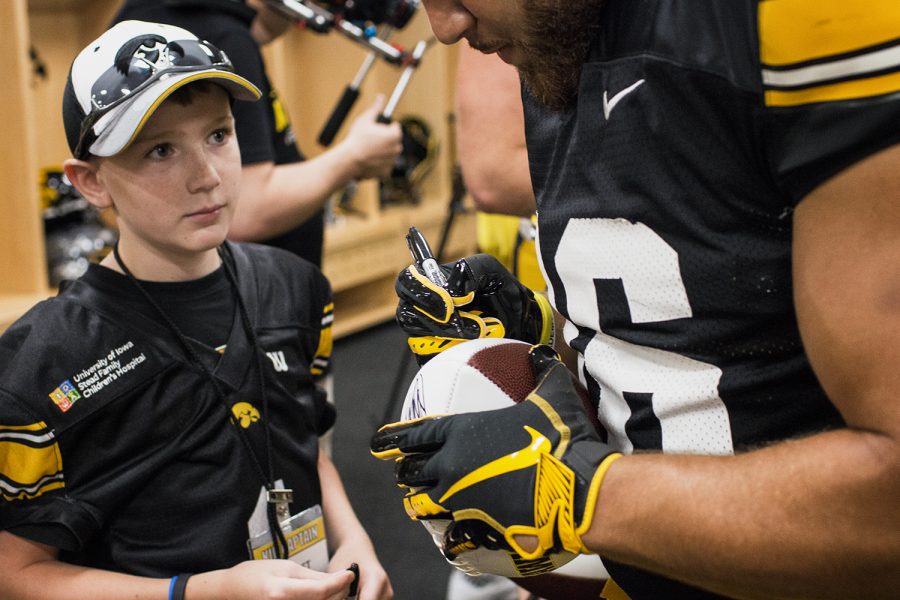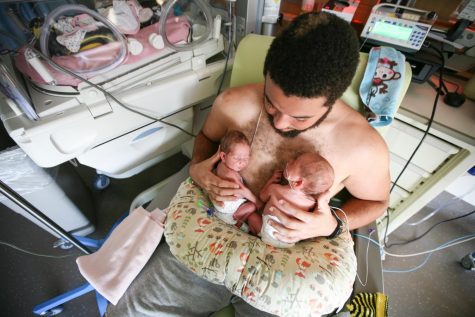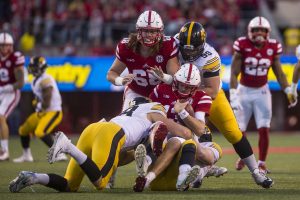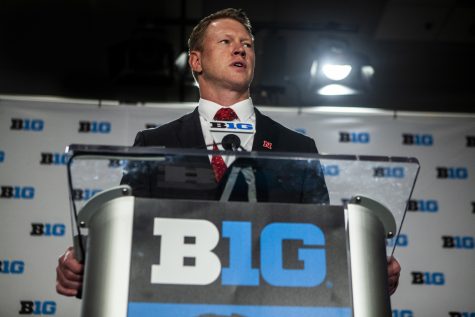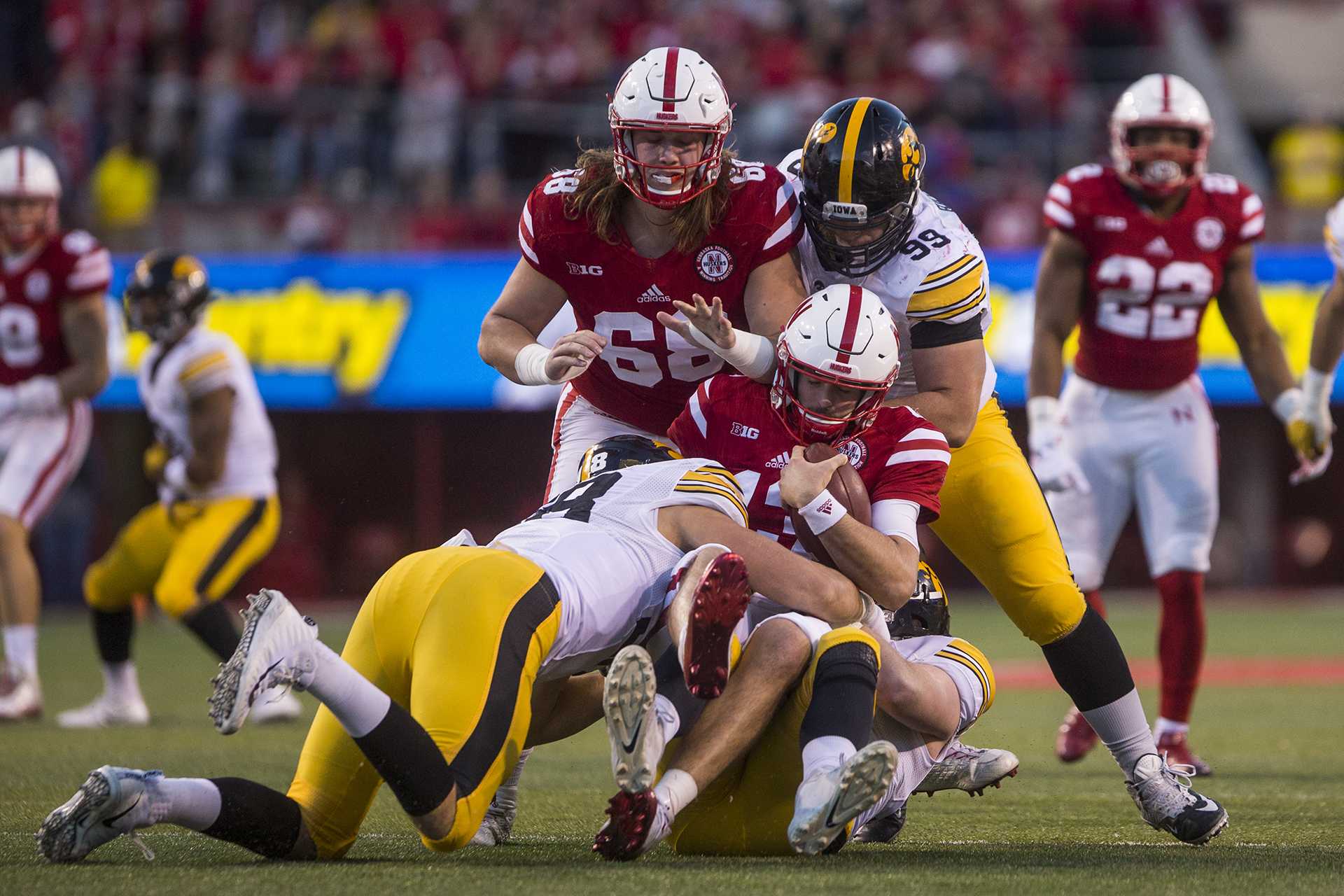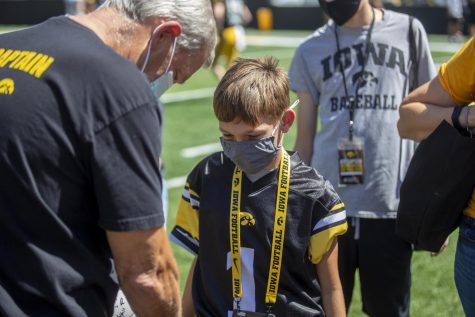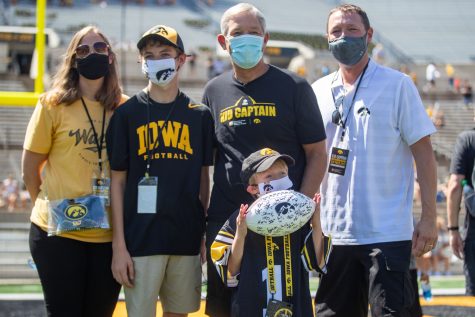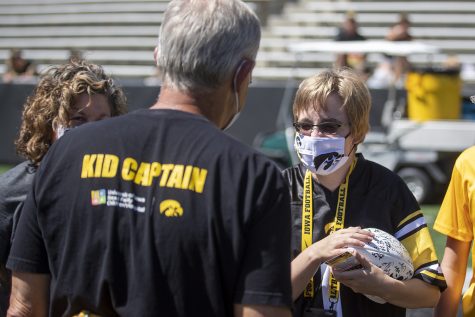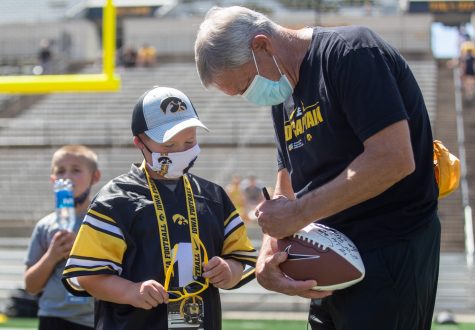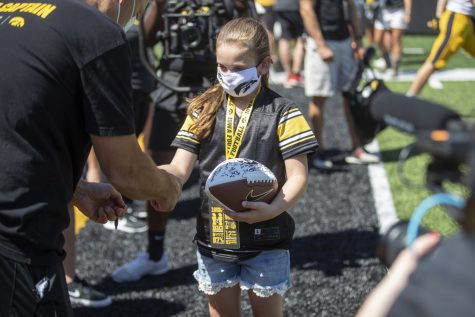Kid Captain shines as a competitive dancer
This week’s Kid Captain, Garret Schuster, doesn’t let his blood disorders keep him from doing what he loves — dance.
Kid Captain Garret Schuster watches his football get signed during Iowa Football Kids’ Day at Kinnick Stadium on Saturday, Aug. 11, 2018.
November 21, 2018
Ten-year-old Garret Schuster loves to dance.
Because of a blood disorder, Garret can’t participate in contact sports and instead he uses competitive dance as an outlet. Garret, an Epworth, Iowa, native, is this week’s Kid Captain for Iowa’s home game against Nebraska.
When Garret was just 6 months old, his pediatrician noticed bruising on his body while treating him for an ear infection. Garret’s parents, Heather and Dan, explained that they lived in the country and that Garret was an active baby. The pediatrician said he shouldn’t have bruises like this and ordered lab tests.
“Just from having the tourniquet on his arm [for a blood test], he had a soft tissue hematoma, which is a big, deep bruise that went from his elbow to his armpit,” Heather said.
Heather was alarmed by the deep bruising and called the pediatrician. After getting the blood work back, Garret was referred to University of Iowa Stead Family Children’s Hospital to meet with pediatric hematologists. Upon further testing, he was diagnosed with von Willebrand disease — a hereditary bleeding disorder in which a key clotting protein is defective or missing.
While there is no cure for von Willebrand disease, it is a treatable disorder. Garret takes medications and undergoes regular IV infusions administered at home through a port in his chest.
“We continued on with treatment for the bleeding disorder that we knew about, but things just weren’t getting better,” Heather said. Garret continued to struggle with frequent bleeding and bruising, and began to have severe nosebleeds.
RELATED: The Hawkeye Spirit: Children’s Hospital and Iowa football celebrate a decade of Kid Captain
After undergoing additional testing such as bone marrow biopsies and genetic testing, Garret was also diagnosed with two nonspecific platelet disorders and a rare genetic disorder called GATA1, where the cells in his bone marrow don’t produce enough platelets.
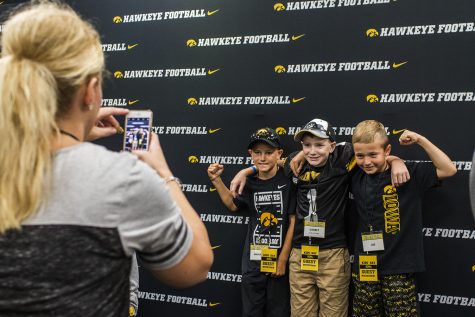
Kid Captain Garret Schuster has a picture taken with his family during Iowa Football Kids’ Day at Kinnick Stadium on Aug. 11.
Because of how rare Garret’s combination of conditions is, he and his family have participated in several clinical trials.
“There was a research study going on through the hospital where they would test the whole family [for von Willebrand disease],” Heather said. “We found out from that research study that Garret’s dad has von Willebrand disease and that’s where Garret got it from.”
One of the biggest issues Garret continues to struggle with is severe nosebleeds that can last up to 12 hours. Garret has undergone multiple surgeries to cauterize blood vessels to help try to get the bleeding under control.
Michelle Krantz, Bleeding Disorder Nurse Coordinator at the Iowa Hemophilia Treatment Center, said Garret and his family has taught her perseverance.
“He has had to miss dance because of bleeding,” she said in an email to The Daily Iowan. “While in the moment he might be sad, angry, or frustrated … he picks himself up and decides to keep going. He doesn’t quit. Garret doesn’t let his diagnosis define him.”
A mantra that Garret and his family use at home is, “Save it for the stage.”
RELATED: This week’s Kid Captain takes on illness like a champ after waiting years for a diagnosis
“He takes all the frustration and the pain from his bleeding disorders and he channels those emotions into his dance and leaves it all on the stage,” Heather said.
Garret has been a competitive dancer for three years and competes in tap, jazz, and ballet. He said he is excited to serve as Kid Captain and walk out on the Kinnick field on Saturday.
He doesn’t quit. Garret doesn’t let his diagnosis define him.
— Michelle Krantz
“It will probably be my only time to walk out on a real football field because I can’t play contact sports,” Garret said. “I am really honored to be [Kid Captain]. I’m thankful for my mom that she nominated me. We never thought I’d get to be this.”
The Schusters are thankful for Garret’s care team and how the team involves him in his treatment.
“Our goal is to give him the most normal life as possible. We help tailor his treatment plan to what he wants do,” Krantz said. “This can include making sure he can get dance practice and competitions which might require him to take his medications to prevent nose bleeding.”
Heather appreciates how Garret’s care team always keeps him in mind when making treatment plans.
“They’ve really involved Garret in his care and taught him how to be an advocate for himself,” Heather said. “When they devise treatment plans or things like that, they always put him at the center of what they’re doing.”



